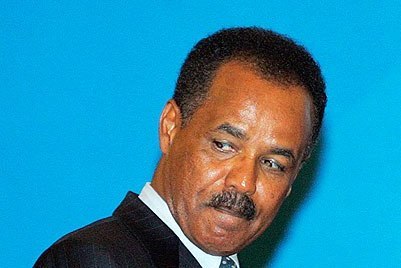Sweden urged to probe journalist’s detention in Eritrea
By Tesfa-Alem Tekle
June 30, 2016 (ADDIS ABABA) – Media watchdog Reporters Without Borders (RSF) on Wednesday called up on Swedish judicial authorities to investigate the case of Swedish-Eritrean journalist Dawit Isaak who remains imprisoned in Eritrea.

Eritrean Foreign Affairs Minister Osman Saleh on Monday made the announcement however said Isaak will only be sentenced when the government decides it is ready to hand the sentence.
“Isaak is a political prisoner and would therefore not be tried in court” said Eritrean Foreign Affairs Minister Osman Saleh.
“The government would instead deal with him as it sees fit, thereby perpetuating the long list of crimes against this journalist” the Eritrean minister added.
The journalist is among dozens of journalists arrested during government crack down in September 2001 along with 15 senior government officials who were also arrested after criticizing President Isaias Afewerki for asking him to allow political reform following the 1998-2000 border war with Ethiopia.
According to RSF, Isaak has never been charged or tried and has never been allowed to see lawyers or his family.
RSF’s call also came on the heels of the release of a new UN Commission of Inquiry on Human Rights in Eritrea report which accused the regime in Asmara of crimes against humanity, including enslavement, rape and torture and called the president and other perpetrators are tried by the international Criminal Court.
Last week, hundreds of Eritrean asylum seekers demonstrate in front of the headquarters of the African Union in the Ethiopian capital, Addis Ababa, in protest to worsening human right violations and in support of the recent UN report.
Demonstrators’ demanded the Eritrean President Isaias Afeworki is referred to the International Criminal Court (ICC) over alleged crimes against humanity.
The rallies were held in the capital, Addis Ababa and in six other refugee camps located near the Eritrean border.
The UN Commission also recommended “that States Members of the United Nations exercise their obligation to prosecute or extradite any individual suspected of international crimes present on their territory.”
This means that Sweden must now assume its responsibility, RSF said
“The recommendation by the UN Commission is a strong argument for Swedish prosecutors and police to start an investigation” it said adding “It is paramount that this investigation be officially opened”
According to the press freedom group, two senior Eritrean officials have visited Sweden since the complaint was initially filed in 2014 but Sweden has failed to question them in a bid to send a strong message to the Eritrean authorities that impunity for their crimes against their population is not possible anymore.
Following government announcement about Isaak’s situation the International Press Institute (IPI) has also renewed its call for the release of all journalists detained in the country.
IPI Director of Advocacy and Communications Steven M. Ellis welcomed Monday’s announcement, but he called on Eritrea’s government to prove its claim by releasing Isaak immediately.
“Dawit Isaak and his colleagues have spent far too long behind bars on unknown charges that they were never even allowed to challenge, and many of them are reported to have died in the face of indefinite detention amid appalling conditions,” Ellis said.
He added “We are pleased to hear reports indicating a gradual opening of the country, at least to foreign reporters. But the government needs to rectify the ongoing injustice against Isaak and other journalists by freeing them immediately, and it needs to allow all journalists in the country to report news freely and without interference.”
Isaak and other imprisoned journalists are reportedly live in poor conditions without receiving proper medical care and are further subjected to different forms of torture.
The Red sea nation is one of the most repressive countries in the world with right groups referring the country as Africa’s North Korea.
It is also Africa’s worst jailer of journalists and one of the most censored countries.
(ST)
